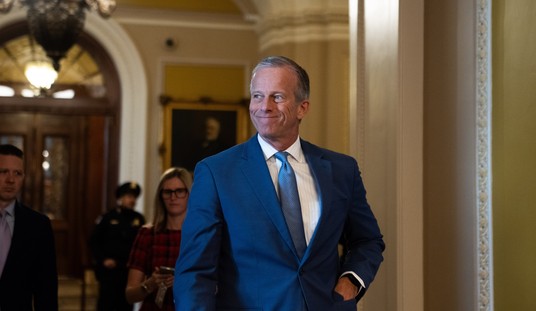I have to admit I have yet to view an entire episode of Aaron Sorkin’s The Newsroom, as I find a sufficient amount of fiction on the real news. As Cato scholar Trevor Burris recently illustrated, the show plays pretty loose with the facts, completely distorting the substance of Citizens United.
The show’s recent explanation of the Glass-Steagall Act, which separated investment and commercial banking, is actually a fairly accurate portrayal of the religious-like devotion expressed by proponents of Glass-Steagall. During the short segment, which you can view here, we are led to believe that the Glass-Steagall Act led to “60 years of increasing middle class wealth”, as well as helping the United States win World War II and put a man on the moon. Setting aside the fact that the 10 years immediately following the passage of Glass-Steagall were pretty lousy by any standard and witnessed hundreds of bank failures, the notion that if we simply brought back Glass-Steagall everything would be fine ignores lots of facts and questions.
First let’s start with the obvious: Bear Stearns, Lehman Brothers, Goldman Sachs, and Merrill Lynch were all stand-alone investment banks. They didn’t take deposits. And of course, Fannie and Freddie weren’t even banks. I have yet to hear a good explanation of how Glass-Steagall would have prevented trouble at these institutions. And those banks that did combine investment and commercial activities, like Wachovia, WaMu, and Citibank, got into trouble because of their mortgage portfolios.
That brings us to the bizarre implicit assumption behind Glass-Steagall: that somehow commercial banking is risk free. Anyone ever hear of the savings-and-loan crisis of the late 1980s and early 1990s? No investment banking angle there. How about the 400+ small and medium banks that failed in the recent crisis? According to the FDIC, not one of them was brought down by proprietary trading.
Recommended
The proponents of Glass-Steagall also ignore one of the basic rules of finance: diversification generally reduces risk. Given that both commercial and investment banking entail risk, if we want to reduce risk to the federal safety net, then I would suggest that the best approach would be to scale back that safety net. The best way to end bailouts is simply to just stop doing them.
If you are looking to why we had relatively stable banking and economic outcomes from around 1950 to 1970, I suggest you consider we had relatively sound monetary policy. Both your banking system and your economy are only going to be as sound as your monetary policy. To quote Christina and David Romer, “In the 1950s, policymakers had a sensible view of potential output and a model of the economy in which inflation certainly did not lower long-run unemployment and quite possibly raised it.” Getting back to that “sensible view” of monetary policy would go a long way toward improving the economy and avoiding financial crises.























Join the conversation as a VIP Member